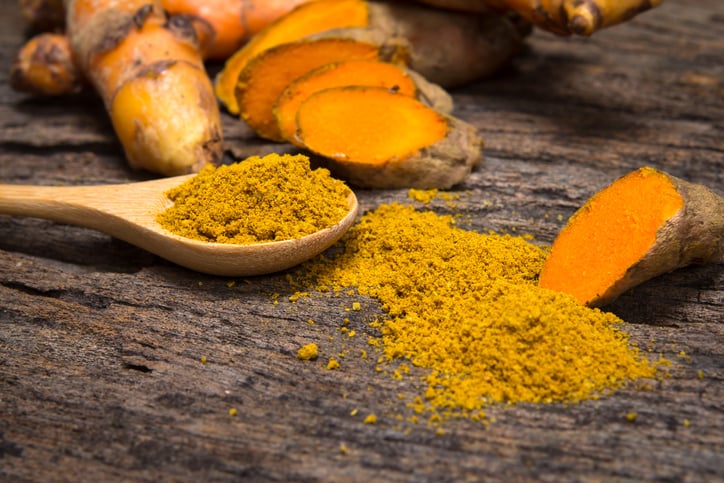4 Overlooked Health Benefits of Curcumin (more than just a spice)

Turmeric has long been revered as a spice, dye, and remedy to promote health and wellness. It’s THE most popular spice in Indian cuisine and a primary ingredient in curry powders. While turmeric is perhaps best known for its spicy flavor, it’s also used to add color and as a preservative and has a long history for health benefits.
While turmeric gets most of the press, the majority of the health benefits of turmeric can be attributed to curcumin, an antioxidant that gives turmeric its yellow pigment. Curcumin is the most abundant of turmeric’s curcuminoid complex, which make up only about 3 – 5% of turmeric.
So, while turmeric contains curcumin, it’s found in relatively very small amounts. So, you’d likely need to consume substantial amounts of turmeric to get a meaningful amount of curcumin. Several grams at least.
Not All Curcumin Is Created Equal
Unfortunately, the potential health benefits of curcumin are limited by very poor bioavailability. And obviously, if you don’t absorb it, you can’t reap the expected health benefits. As a result, several strategies have been used to improve its absorption, and while some have shown promise, a recent well-controlled study demonstrated a new water-soluble formulation (CurcuWIN®) resulted in 46 times greater absorption than standard curcumin powder.
It’s also important to know that many turmeric/curcumin extracts contain residues (above the established safety limit) of the highly toxic solvent “EDC,” a known carcinogen. So, you’ll want to choose a highly absorbable form of curcumin that’s free from this solvent!
Health Benefits of Curcumin
With over 3,000 published studies, curcumin’s one of the most well-researched herbs you’ll find. What do these studies say? It turns out curcumin has antioxidant and antimicrobial effects (to help ward of bacteria, fungi, and viruses). Yet, it’s best known for its ability to promote a healthy inflammatory response.
When it comes to balancing the body’s inflammatory response, curcumin’s been shown to help ensure levels of several key inflammatory markers are in a normal, healthy range.
Not surprisingly, curcumin has been shown to contribute to a variety of health benefits, such as:
- Brain Health: Studies have shown curcumin may help promote brain health and function, supporting cognitive function, mood, and mental health.
- Heart Health: One of the health benefits of curcumin has been is the increasing of antioxidant capacity, promoting healthy levels of inflammatory markers, and helping maintain healthy blood flow.
- Joint Health: Curcumin is perhaps best known for helping ease joint discomfort and stiffness. One 3-month trial found supplementing with curcumin daily reduced joint discomfort by 58% (the placebo group experienced only a 2% improvement). In an 8-month trial, curcumin supplementation led to a 93% reduction in joint discomfort (with just a 12% reduction in the placebo group). Less joint discomfort and stiffness means more freedom to do the things you love and an overall improved quality of life!
- Antioxidant: Curcumin acts both directly and indirectly by scavenging free radicals and inducing an antioxidant response. It has also been shown to have a protective effect on the mitochondria, which are responsible for energy production.
Curcumin = Solid Gold?
While it’s by no means a magic pill, both scientific research and real-world results suggest there are numerous health benefits of curcumin. Of course, even the most effective and research-backed aids, like curcumin, are most beneficial when combined with an overall healthy lifestyle. So, as potentially effective as it may be, curcumin is not the end all, be all.






